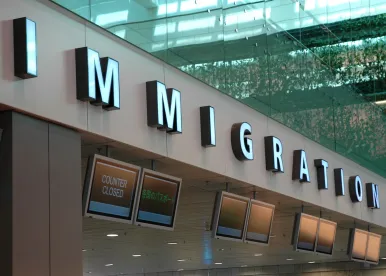Individuals hoping to complete their naturalization processes are being kept in limbo while their files sit in limestone caves.
The National Archives and Records Administration (NARA) has been the depository for “old” Alien Files (“A-Files”) for the entire United States and its territories for some time. A-Files contain all records of any active case of a foreign national not yet naturalized as they passed through the United States immigration and inspection process. According to NARA, these files “may include visas, photographs, affidavits, and correspondence leading up to an alien’s naturalization, permanent residence, death, or deportation.” They contain a wealth of biographical information and are used by researchers, advocacy groups, and genealogists among others.
In 2010, USCIS began the process of transferring A-Files of immigrants born more than 100 years ago to the NARA. Due to storage issues, USCIS has also transferred more recent A-Files to NARA. NARA keeps these files in Federal Records Centers (FRCs) that were built into miles of man-made limestone caves below Kansas City, Missouri. Generally, NARA would retrieve and provide these records upon USCIS request. Since the COVID-19 pandemic, the centers have been basically closed and have not yet fully reopened. The result: naturalization cases cannot be completed because USCIS cannot access an applicant’s A-Files. There are currently 350,000 pending requests from USCIS for records from NARA.
Representative Ted Budd (R-NC) received complaints from constituents who have applied to naturalize about the inability to get access to their files. He wrote to the White House and the Archivist of the United States asking NARA to reopen the FRCs to deal with the backlog problems. He noted that, as of September 2021, the FRCs were still closed or operating only at 20% capacity. Stating that other government workers had to stay at their posts during the COVID-19 pandemic or have returned to their offices, he opined that, due to the availability of vaccines, the FRCs “need to open to full capacity as quickly as is feasible.” NARA reports that staffing levels have been kept low (25%) because Kansas City is in “an area of high transmission.” It stated that it is working to increase access and allow USCIS to retrieve its own files.
NARA has urged USCIS to “change their processes and rely less on paper files to meet their mission. . ..” This is one of USCIS’ strategic, long-term goals: to transition from a paper-based environment to a digital environment and improve data accessibility. For now, those with A-Files in Missouri will have to wait until files can be physically retrieved from below Kansas City.




 />i
/>i

